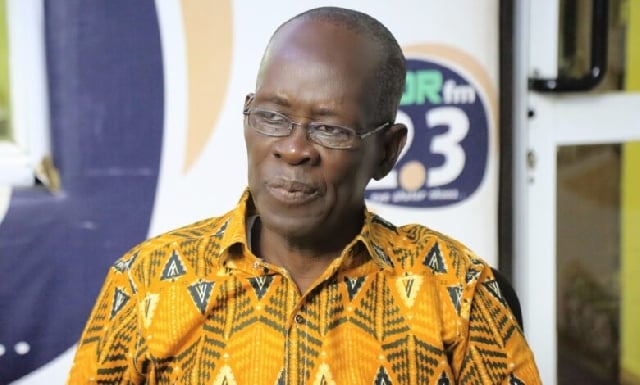Abraham Koomson, Secretary-General of the Ghana Federation of Labour (GFL), has voiced his growing concern over the perceived lack of progress in prosecuting cases under Operation Recover All Loot (ORAL), a flagship anti-corruption initiative of the current government. Koomson argues that while the Attorney-General’s meticulous approach to building robust cases is understandable, the slow pace of prosecutions risks undermining public trust in the government’s commitment to combating corruption. He emphasizes the importance of swift and decisive action to demonstrate tangible results and assure citizens that the initiative is genuinely aimed at retrieving misappropriated state resources. The GFL Secretary-General’s remarks underscore the delicate balance between ensuring due process and maintaining public confidence in the fight against corruption.
Koomson’s concerns stem from the significant role ORAL played in the ruling party’s ascent to power. The initiative, promising to recover stolen public funds, resonated strongly with voters who perceived corruption as a major impediment to national development. The delay in bringing cases to court, Koomson warns, could be interpreted as a betrayal of this promise and erode the credibility of the government’s anti-corruption agenda. He contends that the protracted silence surrounding the investigations feeds public skepticism and fuels suspicions that the government is not as committed to fighting corruption as it had previously proclaimed. This perceived inaction, Koomson argues, could have significant political ramifications for the ruling party, particularly if it is seen as failing to deliver on a key campaign pledge.
While acknowledging the assurances received from the Presidency that cases are being prepared, Koomson insists that the Attorney-General’s office must adopt a more proactive communication strategy to keep the public informed about the progress of investigations and any legal hurdles encountered. Transparency, he argues, is crucial to maintaining public confidence and dispelling any perception of inertia or lack of commitment. Regular updates, even if they simply reiterate the ongoing nature of the investigations, would reassure the public that the government remains dedicated to pursuing these cases diligently. The absence of such communication, Koomson suggests, breeds suspicion and speculation, potentially undermining the very purpose of the anti-corruption initiative.
Koomson further emphasizes that the true measure of ORAL’s success lies not merely in the initiation of investigations, but in securing timely prosecutions that lead to convictions. He argues that only through successful prosecution and the recovery of stolen assets can the government effectively demonstrate its commitment to accountability and deter future acts of corruption. Investigations alone, however thorough, are insufficient to build public trust and reinforce the rule of law. Convictions, on the other hand, send a powerful message that corrupt practices will not be tolerated and that those found guilty will face the full force of the law. This, Koomson believes, is essential to fostering a culture of integrity and accountability within the public sector.
The GFL Secretary-General’s comments highlight the inherent complexities in tackling corruption. Balancing the need for thorough investigations to ensure fair trials with the demand for swift action to maintain public confidence presents a significant challenge. While meticulous preparation of cases is crucial to securing convictions, prolonged delays can create the perception that the government is either unwilling or unable to bring perpetrators to justice. This perception, if left unchecked, can undermine the effectiveness of anti-corruption efforts and erode public trust in the government’s commitment to tackling this pervasive issue.
Ultimately, Koomson’s message is a call for greater transparency and urgency in the pursuit of justice under ORAL. He argues that the government must not only prioritize the thorough investigation and prosecution of corruption cases but also effectively communicate its progress to the public. Open communication, he suggests, is vital to maintaining public support for the initiative and ensuring that ORAL achieves its intended objective of recovering stolen public funds and strengthening accountability within the government. This, in turn, will contribute to building a more transparent and accountable governance system, which is essential for fostering sustainable development and promoting public trust.


